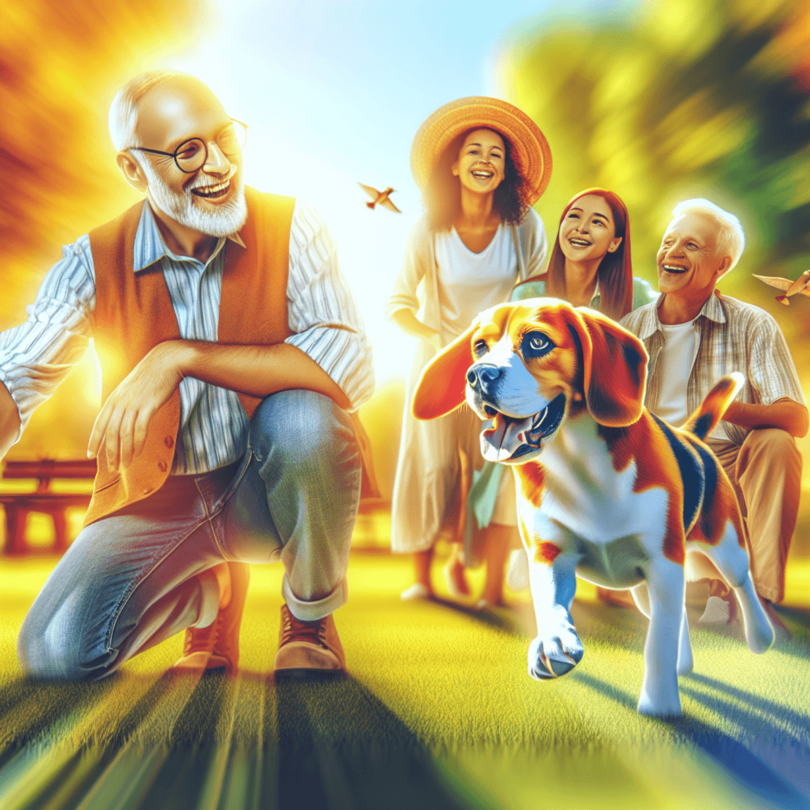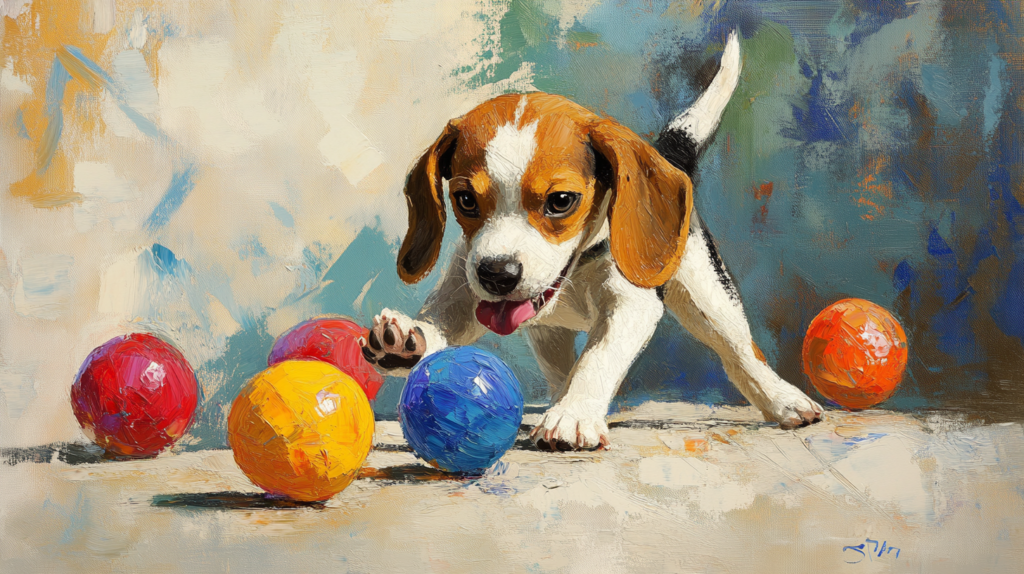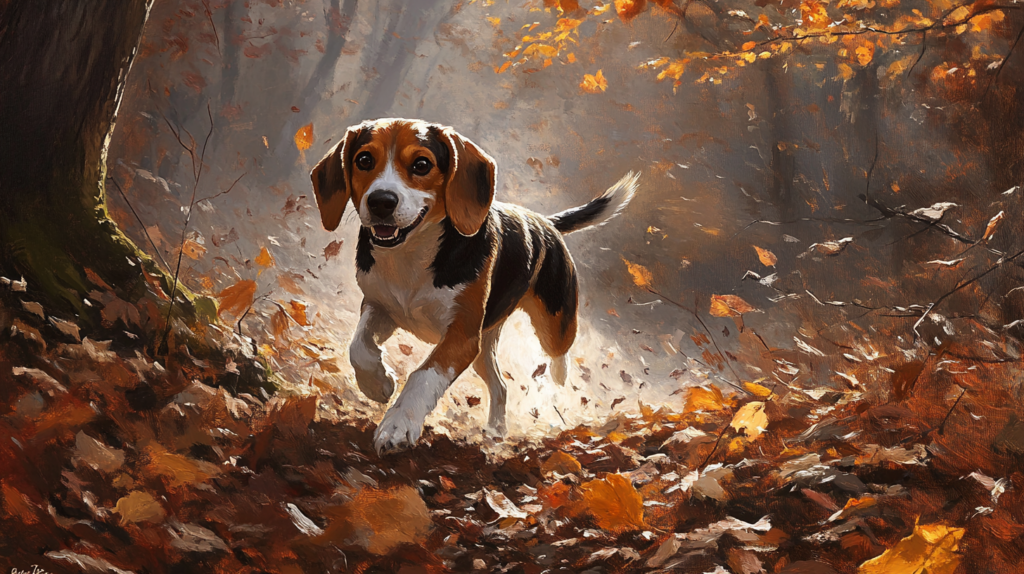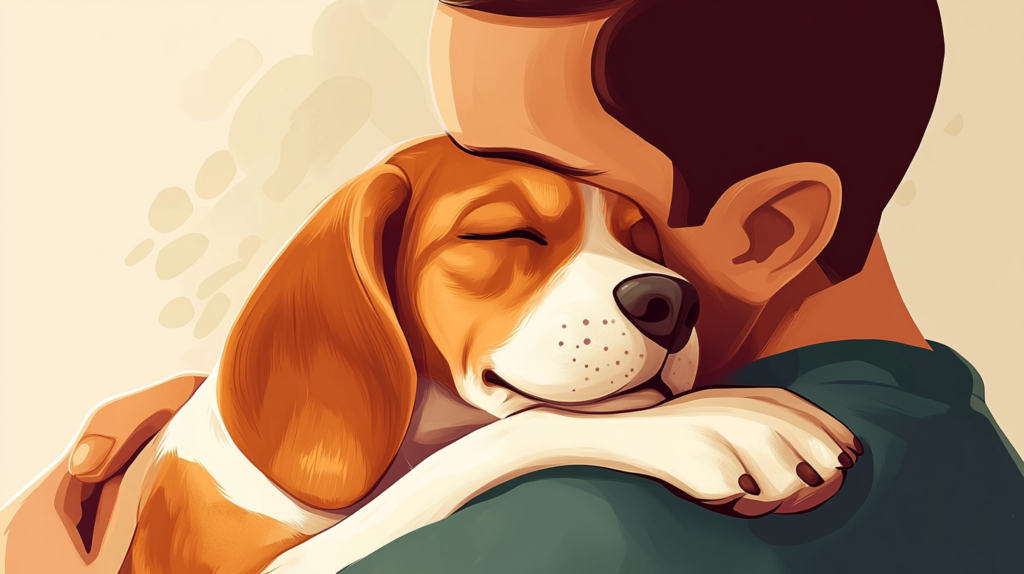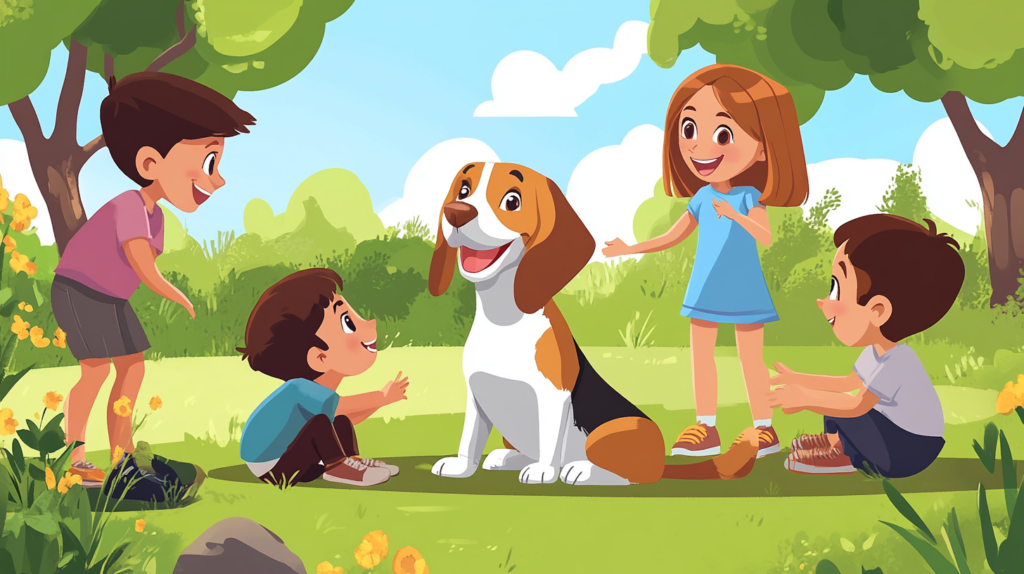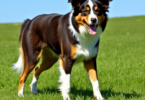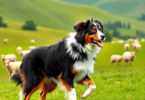Beagle Temperament and Personality
Beagles are small to medium-sized hound dogs known for their friendly, playful, and intelligent nature. They were originally bred for hunting due to their exceptional sense of smell, but they have now become popular family pets.
Understanding Beagle temperament is crucial for any potential owner. These dogs are known for their sociable personality, making them wonderful companions for families and individuals alike.
Why understanding their temperament matters:
- Friendly and Affectionate: Beagles are amiable with family members and strangers.
- Playful and Intelligent: Their curious nature keeps them engaged and entertained.
- High Energy Levels: Regular exercise (at least two hours daily) is essential.
Key Takeaways:
- Friendly and Playful: Perfect for families with kids or other pets.
- Intelligent but Independent: Training can be rewarding yet challenging.
- Exercise Needs: An active lifestyle is a must.
By embracing the unique traits of Beagle temperament, you can ensure a happy and harmonious relationship with your furry friend. So, are Beagles good family dogs? Absolutely! But understanding their personality is key to unlocking the full potential of this charming breed.
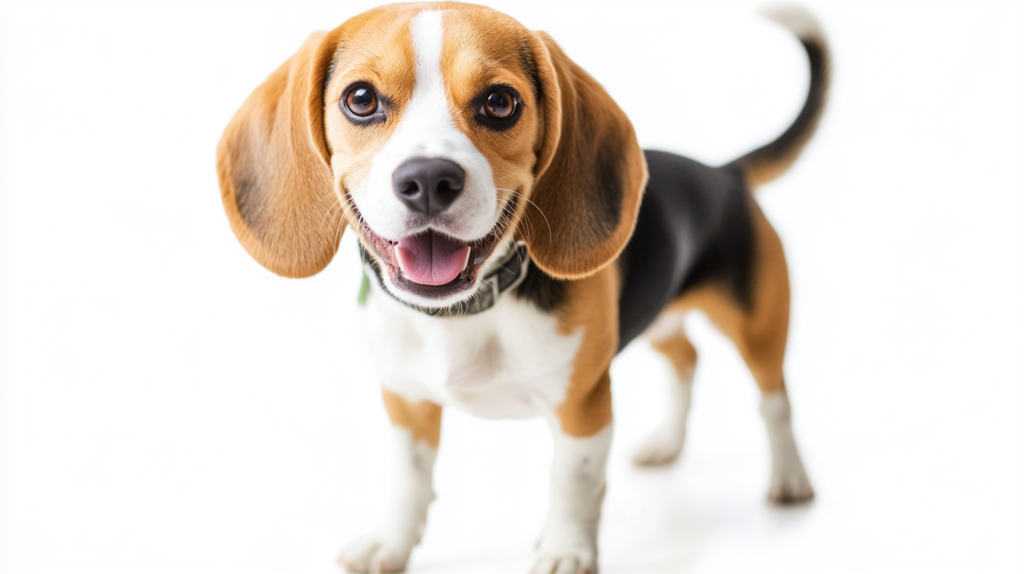
1. General Characteristics of Beagles
Key Personality Traits
Beagles are a delightful blend of friendliness and intelligence, making them a cherished member of the Hound Group. Their amiable nature endears them to families and strangers alike, creating an environment where everyone feels like a friend.
Friendly and Affectionate Nature
- Family Bonding: Beagles have an innate ability to bond deeply with their family members. They are known for their affectionate cuddles and unwavering loyalty, always eager to be part of family activities.
- Stranger-Friendly: Unlike some breeds that might be wary of newcomers, Beagles typically greet strangers with wagging tails and friendly curiosity. This makes them excellent companions in social settings.
Playful Yet Intelligent Demeanor
- Engaging Activities: Their playful spirit is infectious. Be it a game of fetch, a playful tug-of-war, or simply frolicking in the backyard, Beagles are always up for some fun. However, it’s important to remember certain roughhousing rules to ensure safe play.
- Brainy Pooches: Don’t let their playful nature fool you; Beagles are smart cookies! Their intelligence means they enjoy puzzle toys and interactive games that challenge their minds.
Energy Levels and Exercise Needs
Understanding a Beagle’s energy levels is crucial to ensuring they lead happy, healthy lives.
High Energy Levels
Beagles are bursting with energy. Originating as hunting dogs, they’ve retained their zest for physical activities.
- Daily Exercise: Aim for at least two hours of exercise each day. This could include walks, playtime in the yard, or even agility training.
- Varied Activities: Mix up their exercise routine with different activities to keep them engaged. Think hiking trails one day and fetch in the park the next!
Mental Stimulation
Physical exercise isn’t the only thing on a Beagle’s agenda; they need mental stimulation too.
- Puzzle Toys: Invest in toys that challenge their problem-solving skills.
- Training Sessions: Regular training not only reinforces good behavior but also keeps their minds sharp.
In summary, understanding these key characteristics helps potential owners appreciate what makes this dog breed so special: friendly dispositions, playful spirits, and sharp wits. However, owning a dog comes with its own set of challenges. As highlighted in some temporary rescue regrets or the emotional toll of having a reactive dog, it’s essential to be well-prepared for dog ownership.
Energy Levels and Exercise Needs
Beagles, being part of the Hound Group, are renowned for their boundless energy levels. These little dynamo dogs are always ready for action and adventure. Understanding their high energy is key to ensuring they remain happy and healthy.
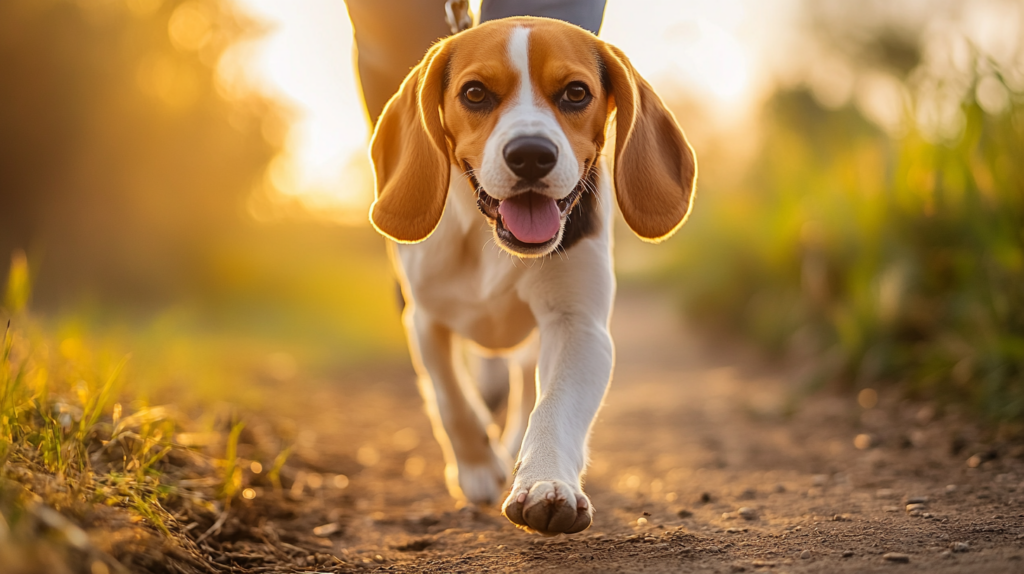
Beagle Traits and Physical Attributes
With a typical height of 13-15 inches and weight ranging from 20-30 pounds, Beagles are small yet sturdy. Their short, glossy coats can be a delightful mix of white, black, brown, and tan. Originally bred as scent hounds, these traits contribute significantly to their lively disposition.
High Energy Levels
Beagles exhibit a zest for life that’s infectious. Their friendly disposition combined with an insatiable curiosity means they’re always on the go. Regular physical activity isn’t just beneficial—it’s necessary! Without adequate exercise, Beagles can become restless or even develop behavioral issues.
Recommended Daily Exercise Routines
A minimum of two hours of exercise per day is essential for this active breed. Here are some fun ways to keep your Beagle engaged:
- Daily Walks: Two long walks each day will help burn off energy.
- Playtime: Interactive toys or games like fetch can keep them mentally stimulated.
- Scent Trails: Create scent trails in your yard or home to tap into their natural hunting instincts.
- Dog Parks: Socializing at dog parks provides both exercise and social interaction.
Health Considerations
Regular exercise not only helps maintain a healthy weight but also supports their overall well-being. However, it’s crucial to be mindful of common health concerns like hip dysplasia or epilepsy that may affect their activity levels as they age.
In essence, embracing the Beagle’s energetic nature through consistent exercise routines ensures they remain the joyful and spirited companions they are known to be.
3. Socializing Your Beagle: Building Positive Relationships with Others
Beagles are naturally social animals, full of curiosity and enthusiasm for interaction. Early socialization is crucial in ensuring your Beagle becomes a well-adjusted canine companion. This process helps them get used to different environments, people, and animals, making life more enjoyable for everyone involved.
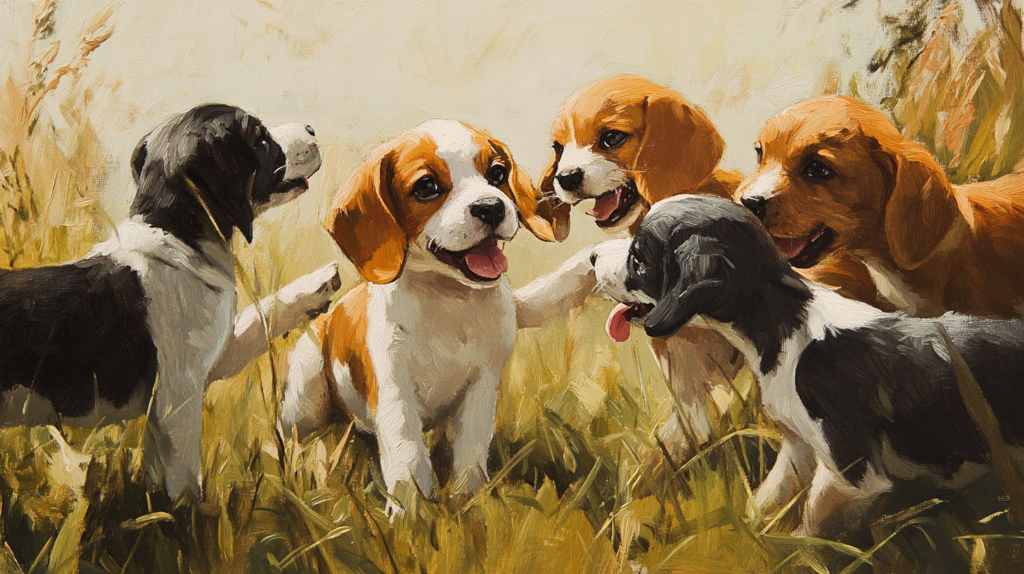
Importance of Early Socialization
Early socialization experiences are vital for Beagles. Exposing your puppy to various sights, sounds, and smells from an early age helps them build the confidence necessary to navigate the world comfortably. This exposure:
- Reduces anxiety and fear in new situations.
- Promotes friendly behavior towards strangers and other animals.
- Aids in preventing behavioral problems such as aggression or excessive barking.
Puppy classes, playdates, and regular walks in diverse locations can all positively contribute to your Beagle’s social development.
Tips for Safe Introductions
Introducing your Beagle to new people, animals, and situations should be done carefully:
- Start Slowly: Gradually introduce your Beagle to new experiences. Begin with quiet settings before progressing to busier environments.
- Positive Reinforcement: Use treats and praise to reward good behavior during introductions. This helps create positive associations.
- Supervision is Key: Always supervise initial interactions with other pets and young children to ensure safety for all parties involved.
- Frequent Exposure: Regularly expose your Beagle to different environments such as parks, pet-friendly stores, or community events.
Positive Interactions with Other Animals: A Focus on Canine Companionship
Beagles generally get along well with other dogs when properly socialized from a young age. Their friendly nature makes them great playmates; however, it’s essential to nurture these relationships correctly:
- Group Play: Encourage play sessions with other dogs that match their energy levels.
- Monitor Behavior: Keep an eye on interactions to ensure they remain positive and intervene if any rough play occurs.
- Reward Calmness: Rewarding calm behavior around other dogs reinforces positive interactions.
Beagles and Other Pets
While Beagles are usually friendly with pets of their own kind, they can also live peacefully with cats and smaller animals if introduced properly:
- Controlled Introductions: Use barriers like baby gates during initial meetings to allow safe observation.
- Patience Pays Off: Give both animals time to adjust at their own pace without forcing interactions.
- Separate Spaces: Ensure each pet has its own space where it feels secure.
Understanding Beagle socialization skills equips you better as an owner, helping you nurture a dog that is adaptable, friendly, and confident in various settings. Whether it’s making new furry friends or greeting the neighbor’s kids, a well-socialized Beagle is a joy to have around!
4. Understanding Potential Behavioral Challenges: Stubbornness or Independent Thinking?
Owning a Beagle can be a joy, but like any breed, they come with their own set of quirks and challenges. When it comes to Beagle behavior issues, one cannot ignore their innate stubborn streak and keen sense of smell.
Common Behavioral Challenges
- Following Scents: Beagles have an extraordinary sense of smell. This trait, while impressive, can lead them to follow interesting scents rather than listening to commands. Imagine walking in the park and your Beagle suddenly catches the scent of a squirrel – off they go, nose to the ground, completely ignoring your calls!
- Stubbornness: Beagles are known for their independent thinking. This can sometimes be mistaken for stubbornness. During training sessions, you might find your Beagle deciding they know best and choosing to do things their way. Patience and consistency are key here.
“It’s not that they’re being bad; they’re just following their instincts!”
Tips to Manage These Behaviors
- Leash Training: Always keep your Beagle on a leash during walks. This prevents them from wandering off after a scent and ensures you have control. If your dog tends to pull on the leash, consider this advice which suggests gradual training techniques that could help.
- Positive Reinforcement: Use treats and praise to encourage desired behavior. For example, if your Beagle responds well to a command despite distractions, reward them immediately. Remember that even dog trainers can have off days, so don’t be too hard on yourself or your pet during this process.
- Mental Stimulation: Engage in activities that challenge their intellect. Puzzle toys or scent games can keep them mentally engaged and reduce stubborn behaviors.
Example Scenario
Imagine you’re teaching your Beagle to stay. You give the command, step back, and then… they wander off to sniff something interesting on the floor! Instead of getting frustrated, bring them back gently, repeat the command, and reward them when they get it right.
Understanding these potential behavioral challenges helps in creating a harmonious relationship with your furry friend. Embrace their unique traits and work with them rather than against them for a happier Beagle life!
Behavior with Children and Other Pets
Beagles are known for their friendly and playful nature, making them great companions for families with children. Their friendly personality ensures they get along well with kids, often becoming partners in various playful adventures. Here’s a closer look at how they interact with children and other pets:
With Children
- Energetic Playmates: Beagles have high energy levels that match well with the vigor of children. They can engage in hours of play, whether it’s a game of fetch or running around the backyard.
- Patience and Tolerance: Generally patient, Beagles tolerate the unpredictable behavior of young kids. They rarely show aggression, making them safe playmates.
- Supervision is Key: Due to their excitable nature, supervision is vital during interactions to prevent accidental nipping or jumping that might knock small children over.
With Other Pets
- Social Butterflies: Beagles usually thrive in multi-pet households. Their sociable temperament means they tend to get along well with other dogs.
- Early Socialization: Introducing your Beagle to other pets at an early age fosters positive relationships. This helps them adapt and reduces any territorial tendencies.
- Curiosity Over Caution: Known for their curious noses, Beagles might initially be more interested in sniffing out new pets rather than showing aggression.
In summary, Beagles bring joy and companionship into homes with both children and other pets. Their affectionate and social nature creates a harmonious living environment when managed with proper supervision and early socialization.
Conclusion
Understanding Beagle temperament is crucial for any potential owner. These furry companions are bundles of joy, but they come with specific needs that, when met, ensure a happy and healthy life.
Beagles thrive on mental stimulation and consistent exercise. Expect to engage in:
- Daily Walks: At least two hours of activity to keep those tails wagging.
- Interactive Play: Games like fetch or puzzle toys that challenge their intelligence.
- Training Sessions: Regular, positive reinforcement training to curb that occasional stubborn streak.
Their affectionate nature makes them fantastic family pets, yet their curiosity can lead them into mischief. A well-exercised Beagle is a content Beagle, reducing the risk of behavioral issues.
Providing sufficient mental stimulation coupled with regular exercise is the cornerstone of responsible ownership. These practices cultivate a balanced temperament and help your Beagle become a well-rounded member of the family.
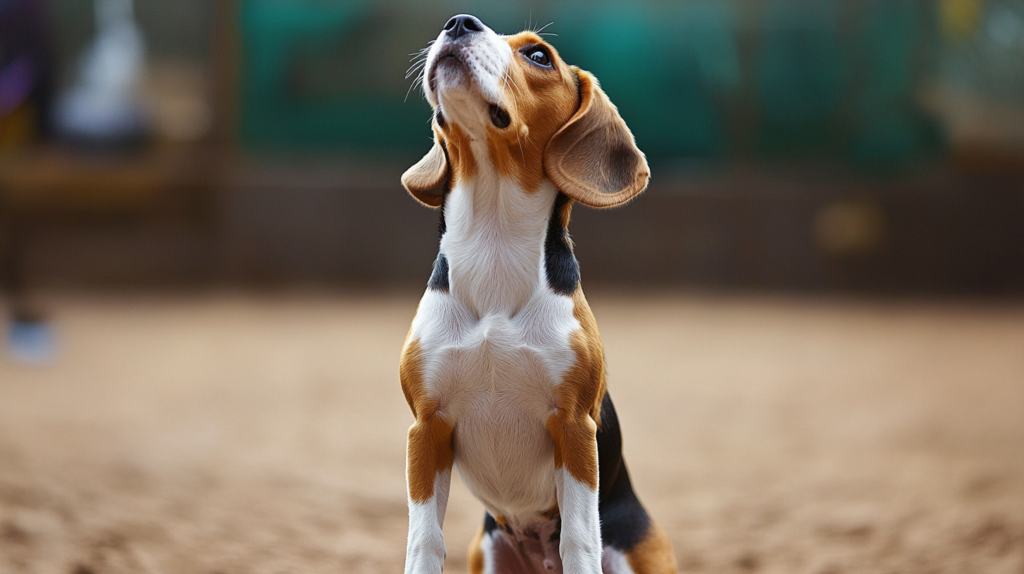
FAQs (Frequently Asked Questions)
What is the general temperament of Beagles?
Beagles are known for their friendly, playful, and intelligent nature. They are affectionate towards family members and strangers alike, making them excellent companions.
Are Beagles good family dogs?
Yes, Beagles are considered good family dogs due to their friendly disposition and playful demeanor. They typically get along well with children and enjoy being part of family activities.
What are the exercise needs of a Beagle?
Beagles have high energy levels and require regular physical activity to stay happy and healthy. It is recommended that they receive at least two hours of exercise daily.
How can I socialize my Beagle?
Early socialization experiences are crucial for Beagles to develop well-rounded personalities. Introduce your Beagle to new people, animals, and situations safely to promote positive interactions.
What behavioral challenges might I face with a Beagle?
Common behavioral challenges with Beagles include their tendency to follow scents and occasional stubbornness. Consistent training and mental stimulation can help mitigate these issues.
What should I consider for responsible ownership of a Beagle?
Responsible ownership involves providing sufficient mental stimulation alongside regular exercise opportunities. This ensures a happy life for your beloved Beagle while addressing their unique temperament and behavior traits.
